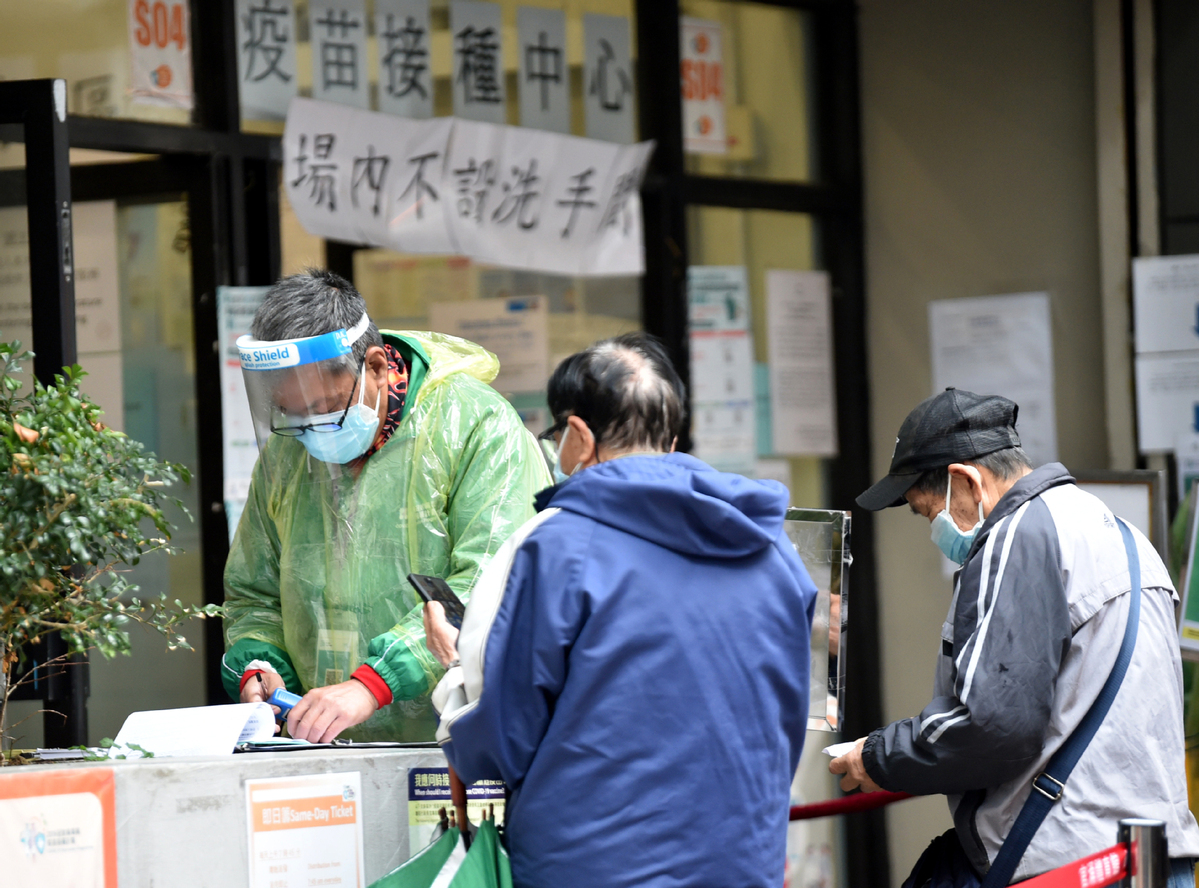HK's budget bolsters efforts to control virus

A staff member registers information for citizens who are going to take COVID-19 vaccines at a vaccination center in Hong Kong, Feb 22, 2022. [Photo/Xinhua]
The Hong Kong Special Administrative Region unveiled on Wednesday its HK$170 billion ($21.8 billion) budget, with a large chunk allocated to combating the COVID-19 outbreak, and funding for long-term initiatives to boost the city's economy and shore up its strengths in line with the nation's development.
The budget measures were announced as the city's daily infections hit a new high of 8,674 cases, taking the total number of infections to 75,248.
Delivering the 2022-2023 budget, Financial Secretary Paul Chan Mo-po said Hong Kong's overall economy saw a recovery in 2021 with growth of 6.4 percent. However, with the fifth wave of COVID rampaging in Hong Kong, he expects this year's growth will be limited to 2 to 3.5 percent.
To quickly control the pandemic soon, Chan pledged to channel more HK$67.5 billion for anti-pandemic efforts, including HK$22 billion to strengthen testing and support the Hospital Authority, and HK$12 billion to build medical and other facilities.
The government also doubled the amount of its digital consumption voucher to HK$10,000, which is expected to benefit about 6.6 million residents. Other relief measures involve tax deductions, personal loan guarantees, support for e-learning for students from grassroots families, and creation of temporary jobs.
The government also designated substantial funds for industry development and land provision.
It plans to set up a HK$5 billion fund to invest in technology enterprises and projects, and earmarked HK$10 billion to boost lifestyle and health-related technology.
Another HK$5 billion will be used to explore investment opportunities in the Guangdong-Hong Kong-Macao Greater Bay Area.
A total of HK$100 billion will be set aside to expedite infrastructure works in the city's Northern Metropolis, a border area prioritized in the government's development strategy.
Henry Ho Kin-chung, founder and chairman of the One Country Two Systems Youth Forum, said the tax deductions for renters and the increase in the consumption voucher amount will help ease the burden on people and help lift the economy amid the pandemic.
However, he cautioned the benefits may not be fully enjoyed if the outbreak gets out of control and urged the government to act more resolutely to rein in the virus, especially in implementing its planned universal testing.
On Tuesday, the HKSAR government announced that all residents must have three mandatory tests in March to detect infections in the community. Those who refuse to receive the tests will be punished.
A survey taken on Tuesday and released by the Bauhinia Institute showed that over 70 percent of people interviewed supported the government in carrying out universal testing as soon as possible.
Andie Chiu, a 30-year-old bank clerk, said that the mass testing is a more "active" strategy than the current restricted testing. She believes mass testing will detect the sources of infection in time and better contain the transmission of the virus.
Chen Shumancontributed to this story.
Photos
Related Stories
Copyright © 2022 People's Daily Online. All Rights Reserved.










